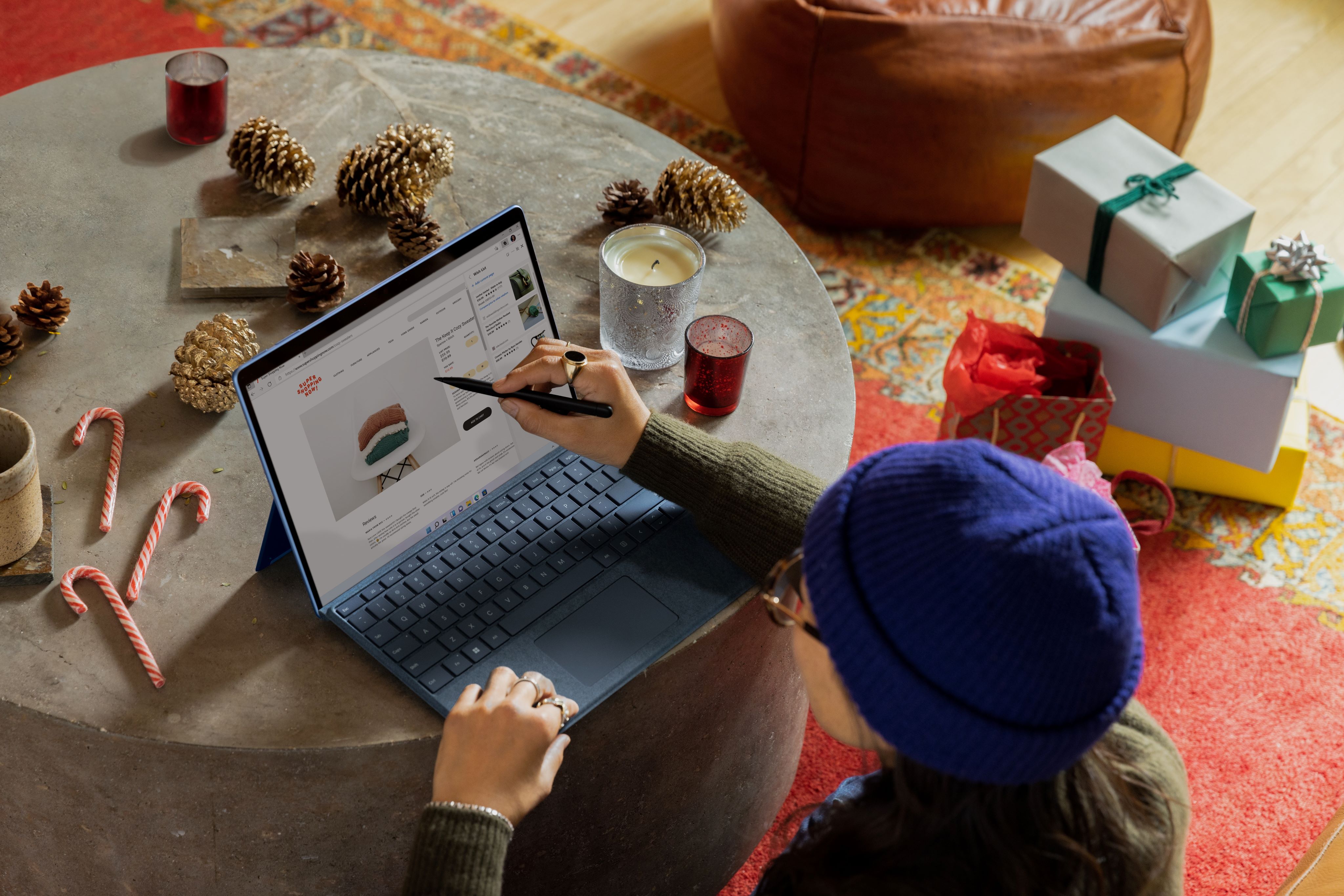The Cyber Corner
Stay Cyber-safe For The Holidays

Online shopping grows increasingly popular each year, and the holiday season is where its impact is particularly noticeable. Cyber Monday is consistently one of the biggest online shopping days in U.S. history, and it continues throughout the season. Unfortunately, the ease and convenience of online shopping makes the holiday season a perfect time for cybercriminals to take advantage of unsuspecting online shoppers.
Fortunately, there are some things you can do to reduce the risks of these cyber threats. When you shop in person, it's a habit to bring reusable bags, lock the car, and put away your cash or credit card when you’re done with your purchase. Similar habits can protect you, your purchases, and your identity when you're shopping online during the holiday season and year-round:
- Shop reliable websites, and get there safely. If an offer sounds too good to be true, it probably is! Don't be fooled by the lure of great discounts by less-than-reputable websites or fake companies. Use the sites of retailers you know and trust, and get to their sites by directly typing a known, trusted URL into the address bar instead of clicking on a link.
- Beware of seasonal scams. Fake package tracking emails or texts, fake e-cards, fake charity donation scams, and emails requesting that you confirm purchase information are particularly common this time of year. Use known, trusted URLs instead of clicking on links.
- Conduct research. There are a lot of fake and malicious companies out there this time of year. When considering a new website or online company for your holiday purchases, read reviews. Also, verify that the website has a legitimate mailing address and a phone number for sales or support-related questions. If the site looks suspicious, call and speak to a person.
- Keep clean machines. Before searching for that perfect gift, make sure your device, apps, browser, and anti-virus/anti-malware software are patched and up to date.
- Check your credit card and bank statements regularly. These are often the first indicators that your account information or identity has been stolen. If there is a discrepancy, report it immediately. Set alerts on your banking and credit card apps to notify you of transactions over a certain dollar amount, and use them to spot signs of unusual activity.
- Get savvy about Wi-Fi hotspots and public computers. Limit the type of business you conduct on all Wi-Fi hotspots and public computers, even if they appear to be safe. Logging into key accounts (i.e. email, banking) and shopping should only be done if absolutely necessary. Set your devices to “ask” before joining new wireless networks so you don’t unknowingly connect to an insecure or fraudulent hot spot.
More Posts
All PostsJan 13, 2025
Data Privacy in the Digital Age
Oct 23, 2024
The Evolution of the Phishing Email
Oct 08, 2024